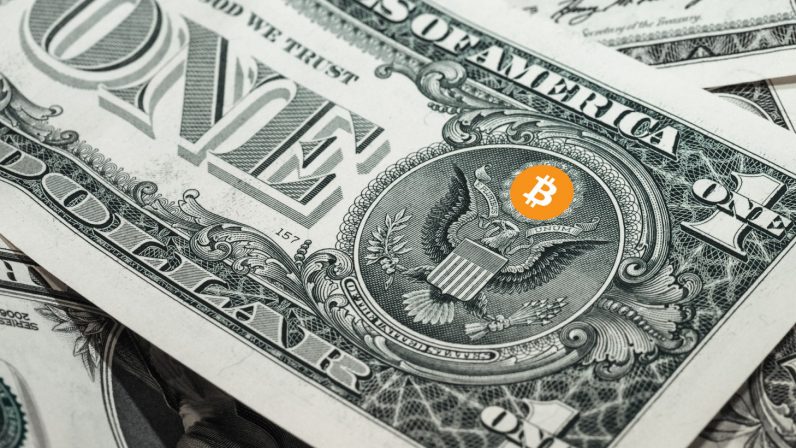2018-11-7 12:24 |
If the abundance of reportage regarding crypto related thefts and frauds is anything to go by, it might not be so wrong to say that there’s a conspiracy afoot against cryptocurrencies. There’s not as much media coverage of financial crimes carried out in the mainstream finance sector as there is for cryptocurrencies.
But when it comes to crypto, there’s a lot of noise about it all over the place –most of it selective though. It appears that journalists and media houses are in the business of selectively reporting news items that will only paint cryptos in a bad light.
Yet, crypto market cap as well as funds lost to thefts are almost as commensurate as that of traditional finance. You would think that thefts to the tune of almost $200 billion would be enough to deserve a front page splash on major publications as well as become a hot topic for debate among financial experts.
A January 2018 MIT Technology Review showed that $172 billion was lost to cyber thefts, primarily from crypto based thefts. That’s almost $30 each for every living individual in the world.
In comparison, about $1 billion is lost to credit card fraud, $50 billion gets missing from retail merchants and stores, car thefts only amount to about $6 billion in losses, and burglaries cost homeowners and the government another $15 billion annually.
These are huge figures, as you can see, not even remotely close to the losses sustained by the cryptocurrency industry. Cryptocurrency based thefts and frauds should be right up there with Intellectual Property thefts worth about $600 billion annually. The world needs to speak up more about these thefts even if cryptos aren’t considered mainstream finance.
Currently, the news headlines are focused on Federal Reserve there’s about $1.4 trillion circulating around in the US economy, yet nobody or organization can track where the bulk of it is –that’s about 85 percent.
More interestingly, about $80 billion of these funds have been tracked to Russia, while another $140 billion is circulating in the illicit trade sectors. The news about Goldman Sachs executives involved in the embezzling of about $6 billion from the Malaysian Development Fund has also been all over the place.
If all these incidents are happening in the traditional sectors and we’re hearing so much outcry and outrage, why in the world is the crypto sector being neglected? As you can see, if anything is certain, it’s that thefts are a constant in the finance and business sectors. This is not surprising seeing as theft can be lucrative when it’s done on a grand scale.
Fraud, Scams, Embezzlement And Theft Are A Common OccurrenceLet’s be very clear: no one likes thieves. In fact, in certain parts of the world, thieves aren’t looked kindly upon. Here in the US, they might get anything from a slap on the wrist to a few years in jail.
In other parts of the world however, thieving is considered a capital offence. Thieves who are caught can be executed either by jungle justice, an ill-equipped system that “forgets” them in prison or outright execution through official edicts.
In other climes, they may have body parts like the hands and legs cut off. The point is thievery is a globally abhorred act, and in an ideal situation, everyone would desist from it.
However, the more realistic approach is to understand that it’s pretty much a key part of our daily occurrence. There’s no idealistic society where that doesn’t happen.
As long as you have so much money lying around, there will always be individuals who would do anything to take shortcuts and illegally amass some of that wealth for themselves, including stealing.
In fact, one might go as far as saying that criminal activities involving stolen wealth is the norm. Otherwise, how do you explain the report that these activities are responsible for over 22 percent of global GDP? That’s correct, a whopping 22 percent!
Black markets and financially shady activities are thriving all over the world and is probably bigger than we know. It doesn’t matter if this is as a result of personal vices like greed, stealing and the manipulation of the world’s economies are very common, and a steady aspect of our daily existence.
You don’t have to look very far to see its effects. You are probably surrounded by its effects every day in the form of poor, anti-masses government policies, poor infrastructural maintenance, bankrupt businesses and economies, increased crime rates and so much more.
Worse still, the banks that you and I trust have been routinely fined of hundreds of billions of dollars because they have been skimming off the top of our monies and stealing from us. In fact, it appears that stealing in all its various forms has been informally institutionalized. It’s part of the reasons for the lackadaisical attitude that triggered the 2008 recession.
Are People Ignorant Of These Trends?You would think that with all these happenings, people would be worried about losing their life savings or having their cars stolen; and that the media would be all out on these incidents, publishing news items, editorials, opinion pieces, holding talk shows, and hosting security experts all day.
Ironically, the reverse is the case. It appears that the world has either been deluded into this false sense of security or its citizens provided with an illusion that they in charge of things. We have been lulled into thinking that as long as we have got control over our person stuff and space, we’re okay.
This is why we feel a sense of security when we point the key fob at our vehicle and walk away as the lights blink twice and hear the blip of the car’s security system indicating that it’s now active. As far as we’re concerned, the car is safe and secure.
It’s the same reason we give our monies over to the banks, who then tell us what our withdrawal limits are while coaxing us into believing that it’s better that way. And yet, we still trust them because… they’ve got big structures and security measures that we don’t have.
But, just because they have these doesn’t mean they aren’t stealing from you and me. Of course, you might not be able to tell if they were because they aren’t doing it directly. They do it in the form of transaction, maintenance, or renewal charges and interest rates. And because these sums don’t seem like much, we let them slide.
Yet, if time and evidence has proved anything, it’s that these banks are making a fortune from our monies. In 2017 alone, 10 US based banks generated a $30 billion profit in 90 days. That’s an average of $3 billion each or $1 billion per month. Pray tell, what are they doing to generate such huge proceeds?
Which Leads Us To CryptocurrenciesThe reality is that while cryptocurrencies can be seen as uncharted waters, it does the one thing that most banks or financial institutions don’t do: give you complete and total control over your money.
Of course, it is not devoid of cyber-attacks and theft attempts, but it can be a viable alternative that will help people become more independent.
With the help of the media, investors and traders can be educated on the best cryptos to invest in, which security measures are best for keeping their monies safe –if you’re using traditional banking systems now, you’re probably following some laid down security protocols- and how to ensure that they stop being stolen from.
Of course, there are other worries and challenges such as its untraceable nature, which can mean that your funds won’t be recovered if stolen. But, the reality is that you just need to be a little more careful –probably no more than you are now with traditional banks.
While there are genuine concerns about the viability of crypto projects, their possible volatility and security risks, the truth is that it might be the better alternative. Simple personal steps can go a long way in keeping your monies safe from the prying eyes of malicious individuals.
The mainstream media should focus a lot more on how cryptos can become a better option for regular citizens. Of course, this might be somewhat far fetched, because, God forbid, cryptocurrencies become legal tender.
While it might be a pipe dream for now, we’re hoping that the future brings brighter prospects, with cryptocurrencies getting the attention and media coverage it deserves. In the meantime, the media will probably continue to selectively encourage the negative narrative about cryptos.
origin »Bitcoin price in Telegram @btc_price_every_hour
Global Cryptocurrency (GCC) íà Currencies.ru
|
|















